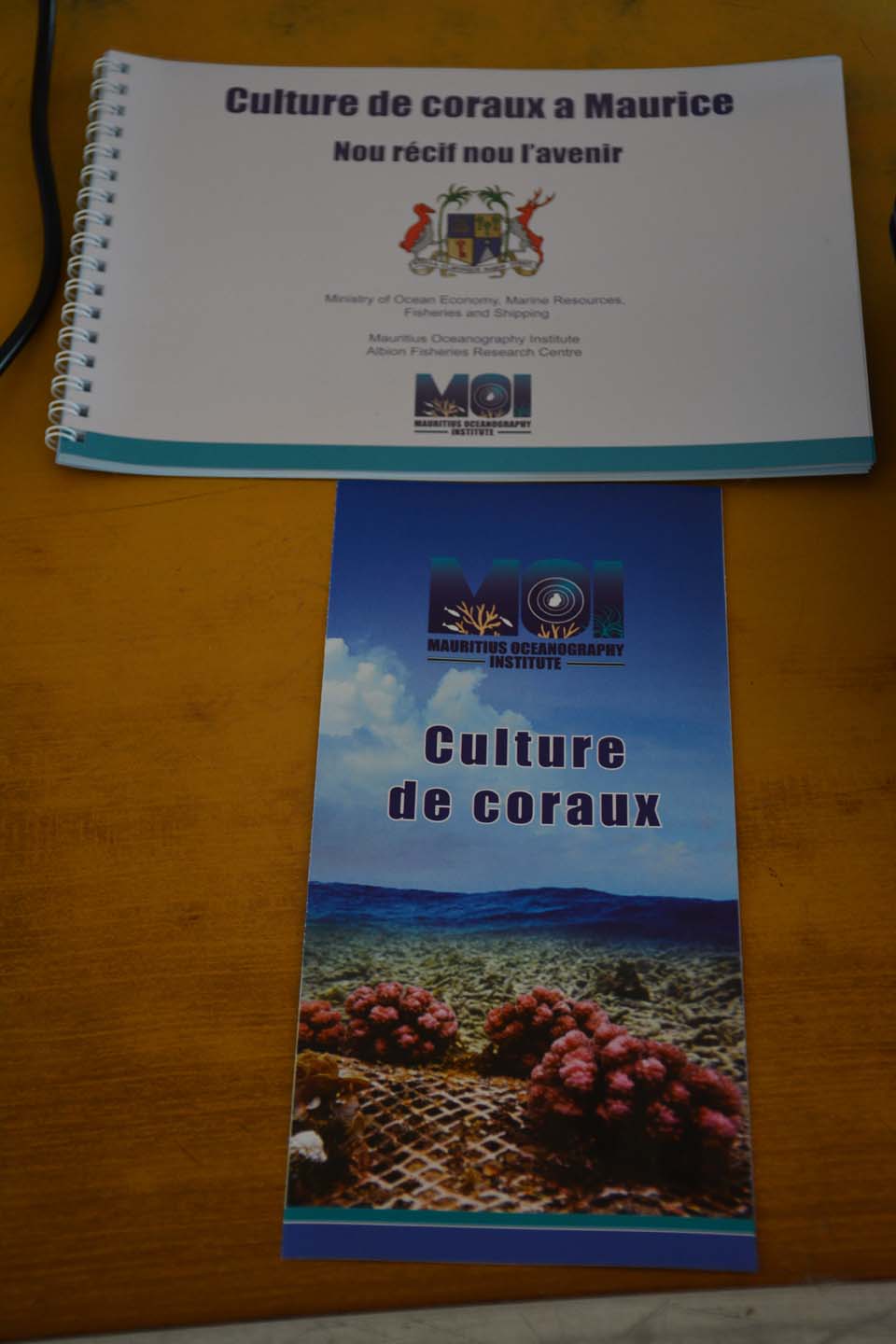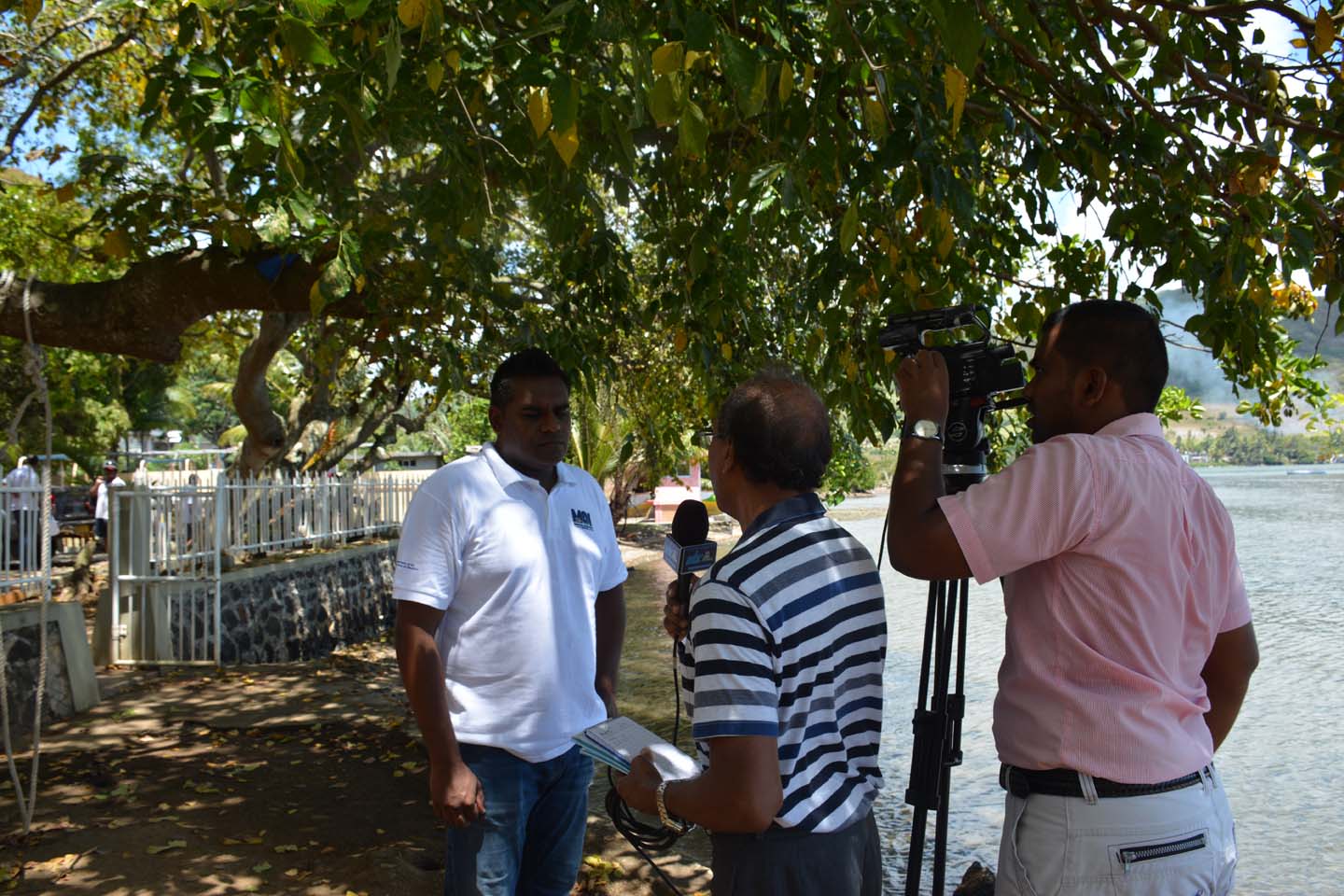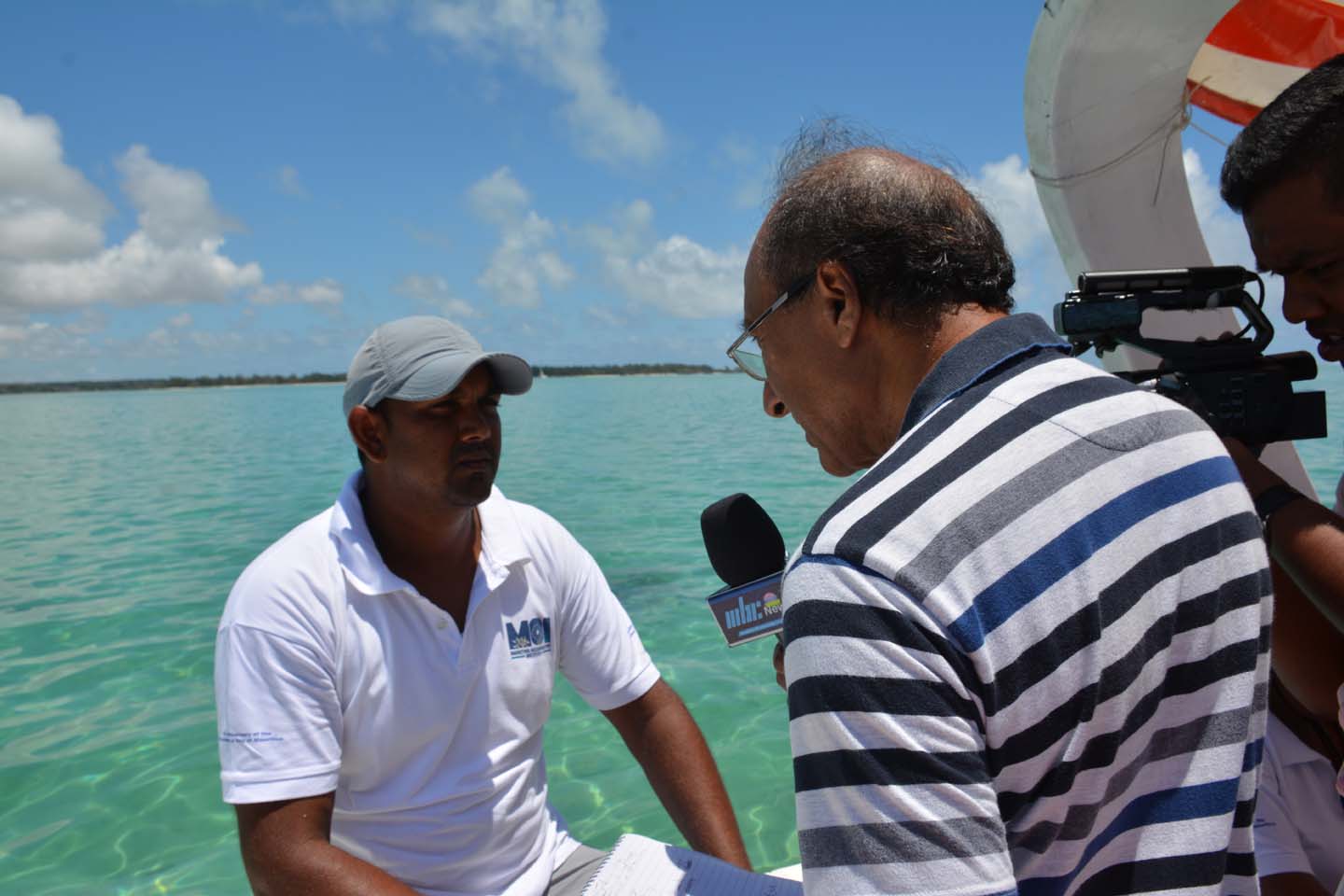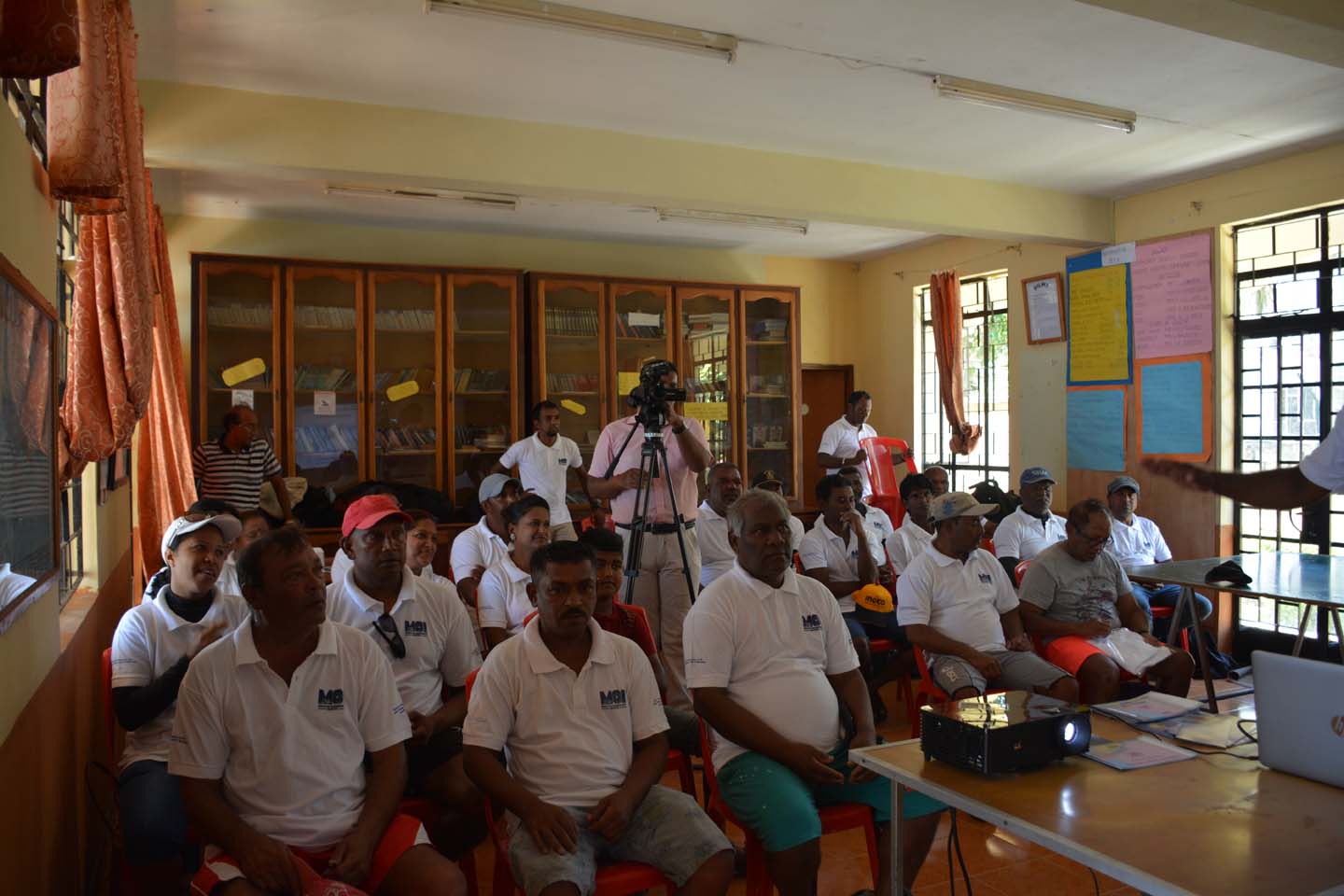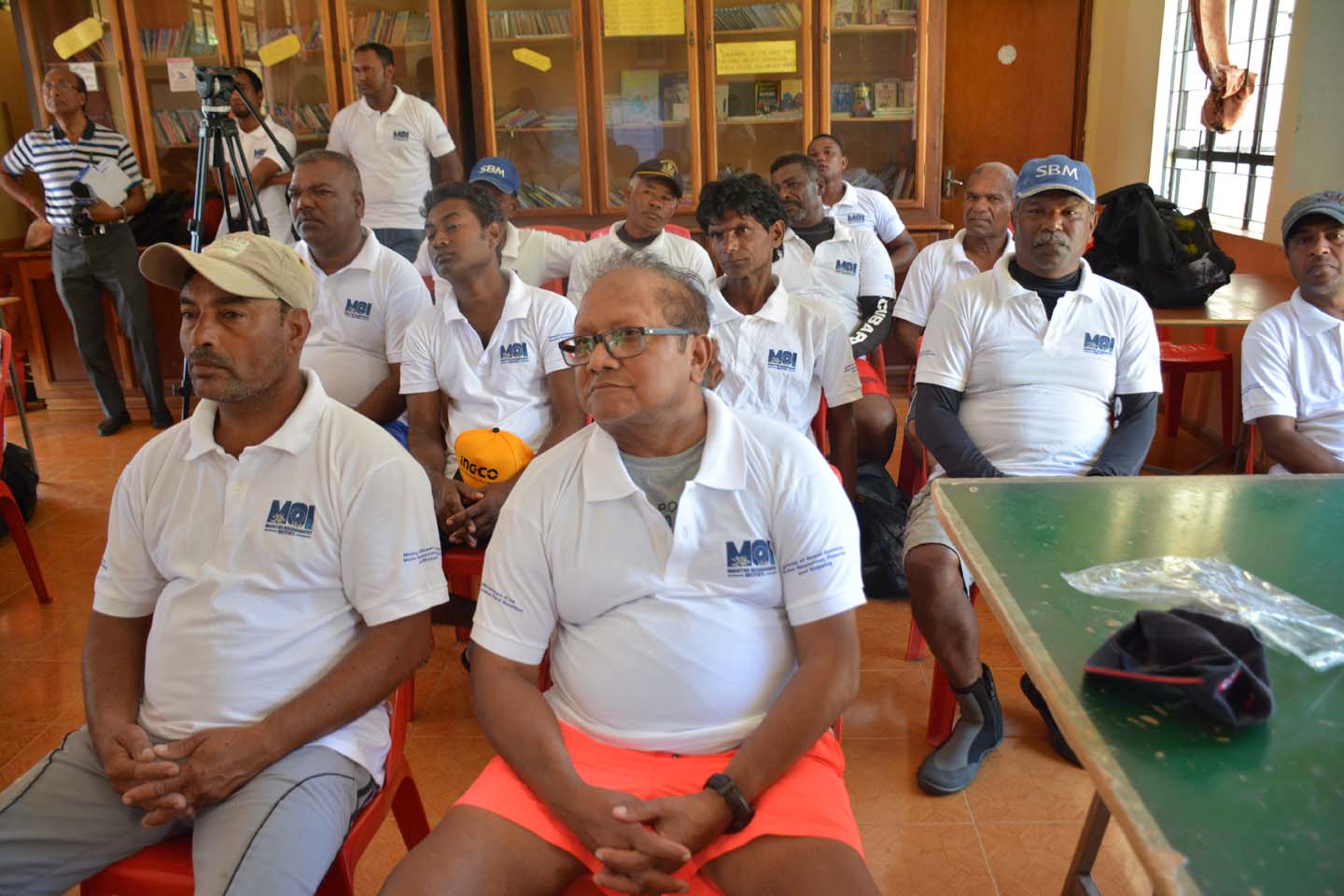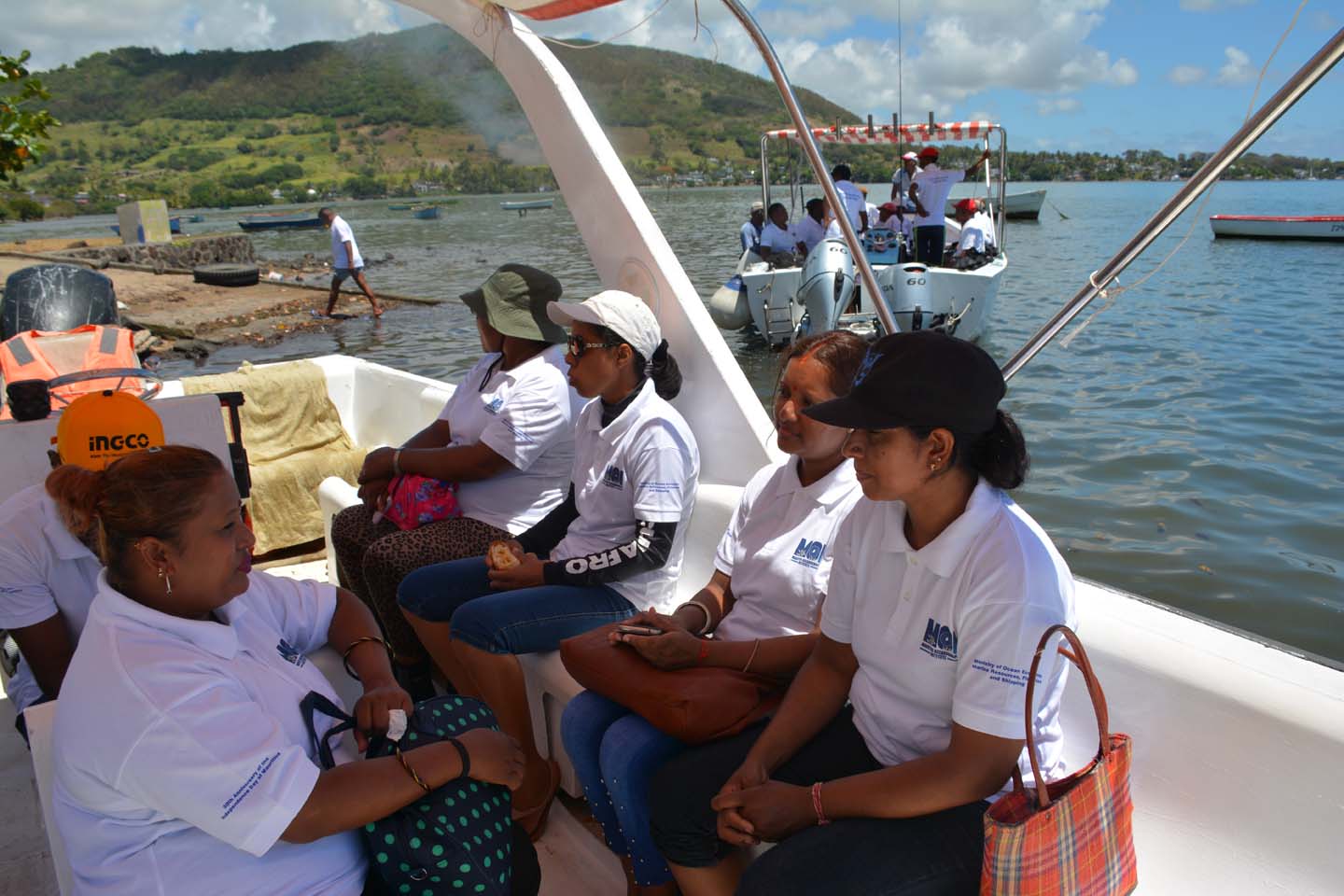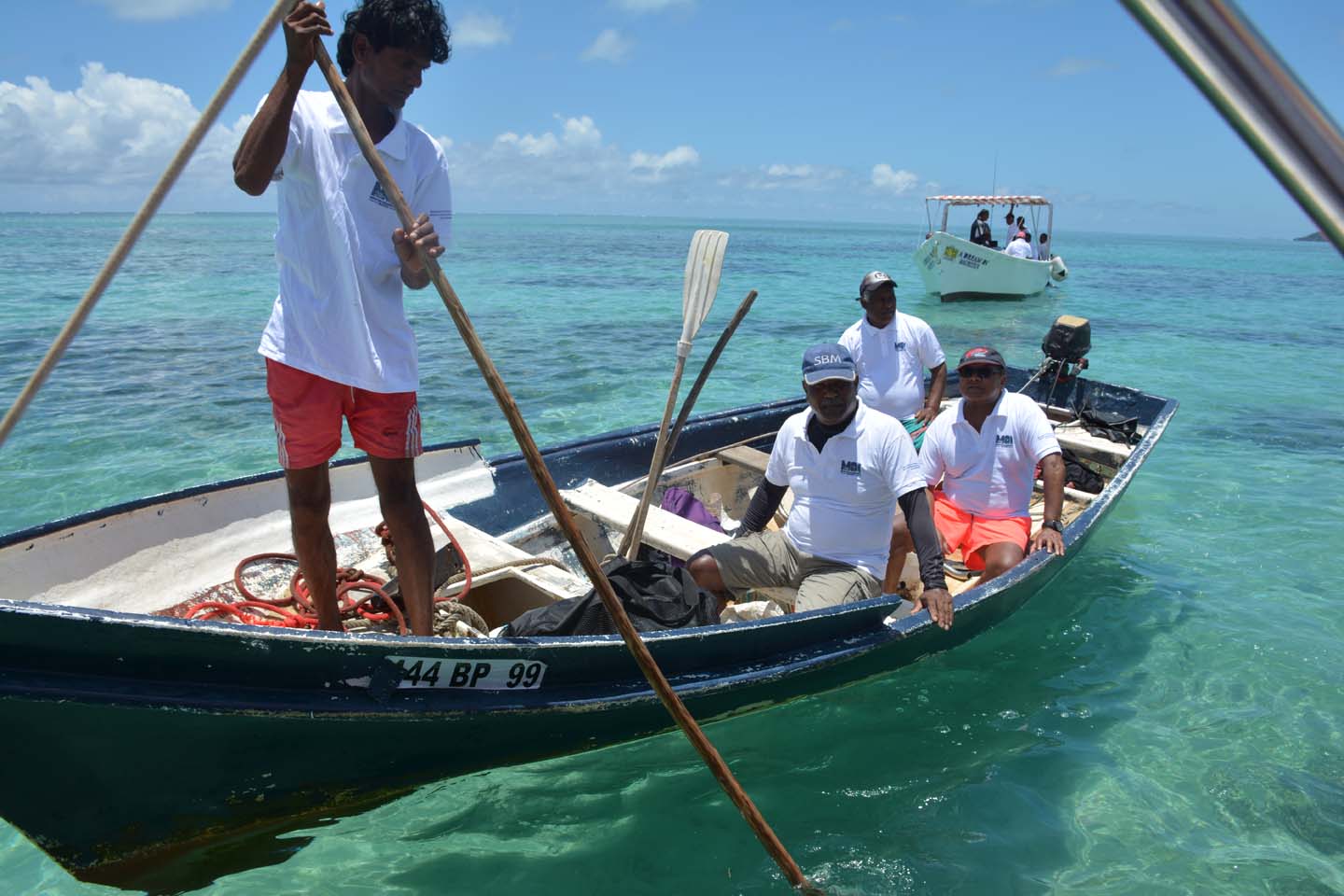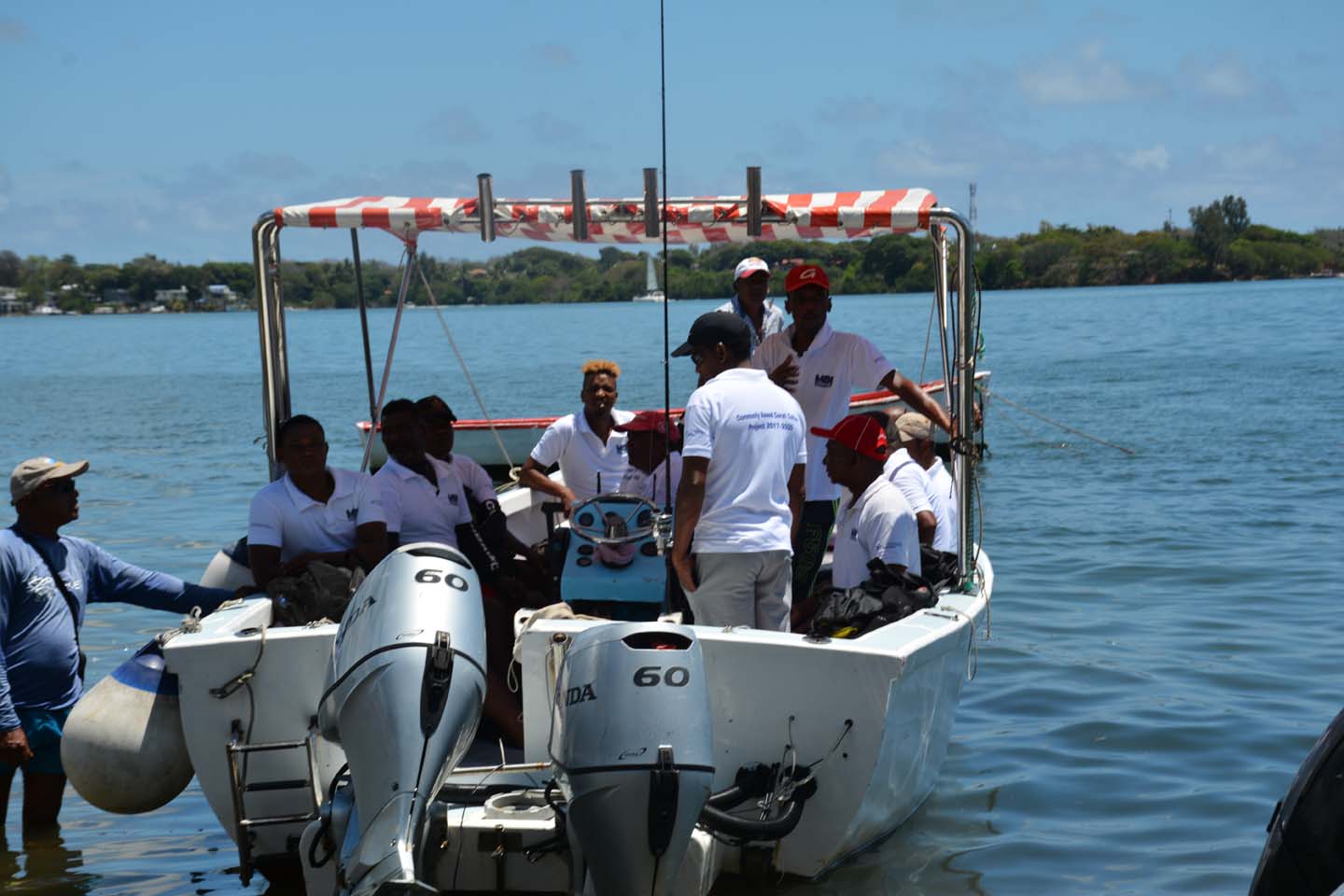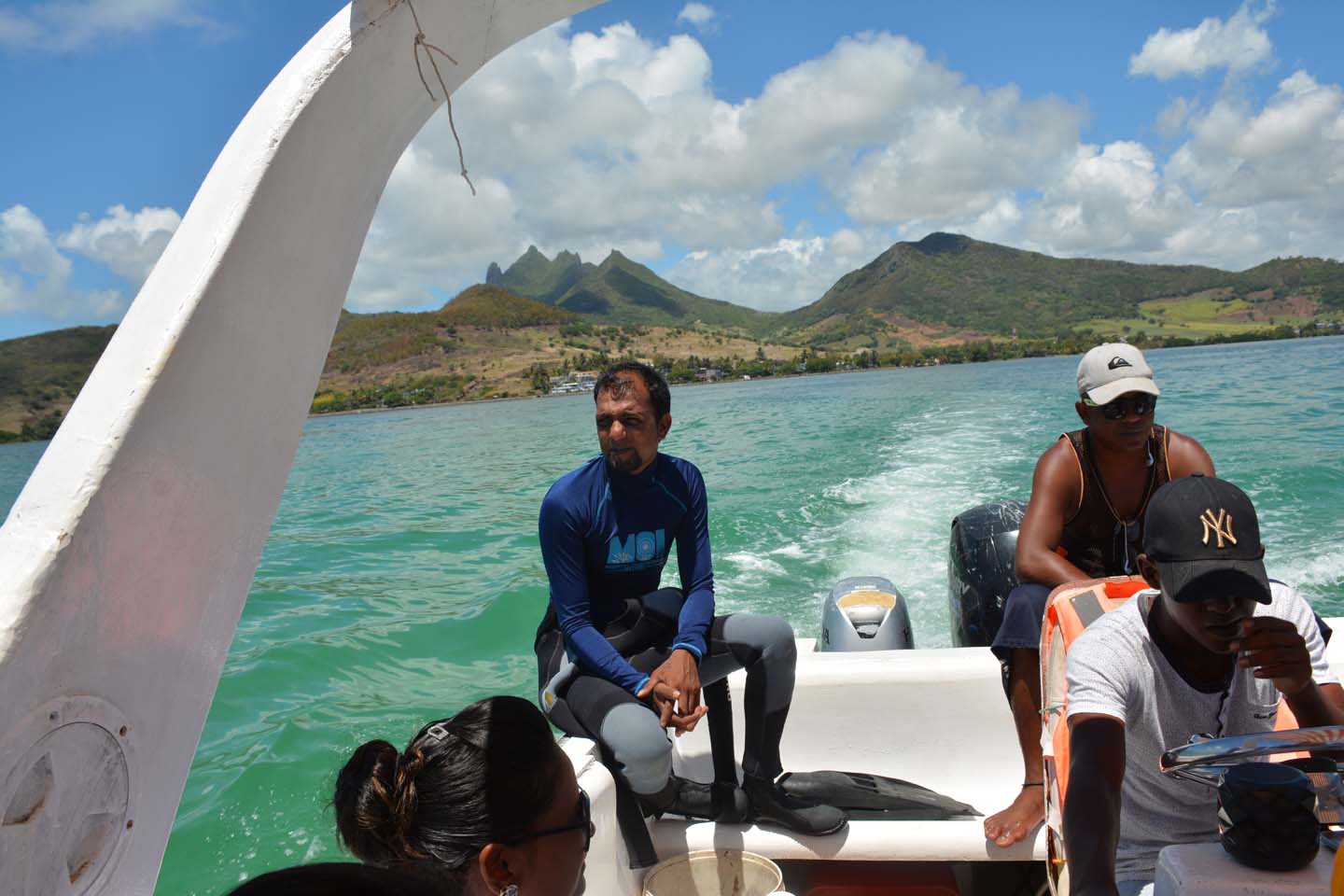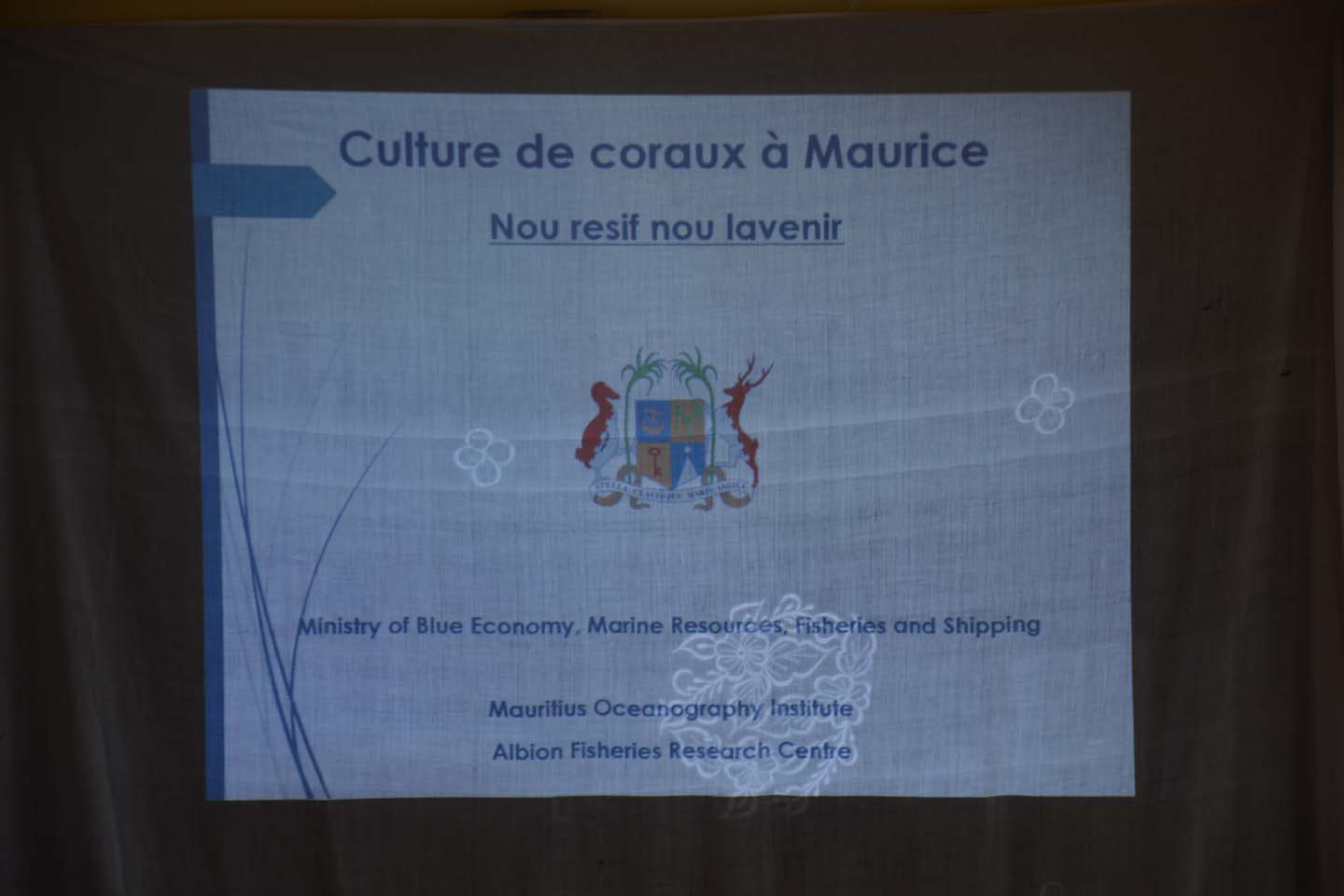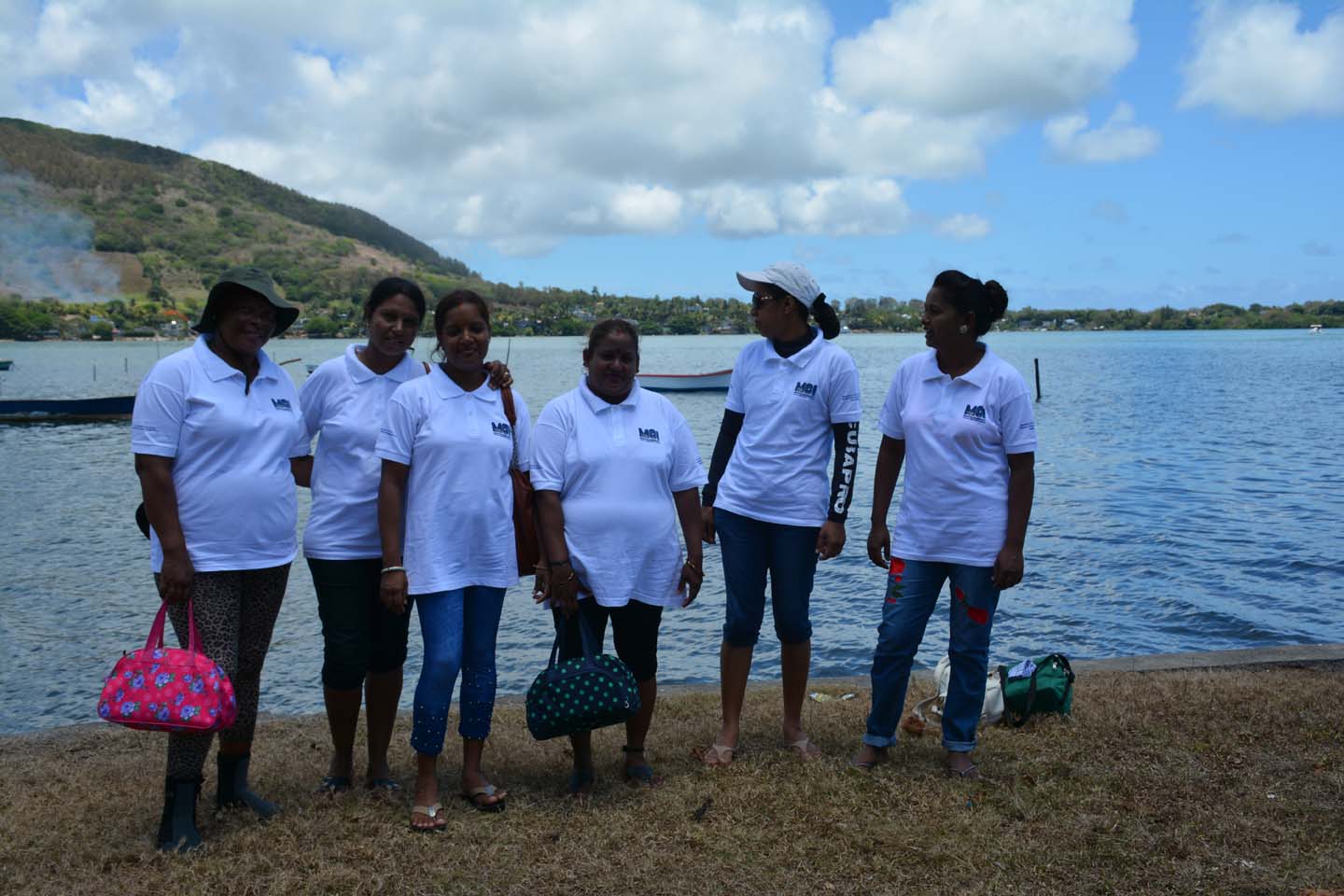MOI’s ongoing reef restoration initiatives
In 2017, the MOI in collaboration with the Albion Fisheries Research Centre, (AFRC), both under the aegis of the Ministry of Blue Economy, Marine Resources, Fisheries and Shipping (MBEMRFS) initiated a “Community based coral culture project in the Republic of Mauritius”. This three year project aims at “Promoting coral culture as an alternative livelihood for fisherman and coastal communities for conservation of marine biodiversity”, through training and capacity building of coastal communities in coral culture and reef rehabilitation techniques. The project is currently being implemented at four locations around the island namely, Quatre Soeurs, La Gaulette, Bel Ombre and Grand Gaube. Till date, a total of 110 coastal community members (i.e. 85% male and 15% female) have registered under a “Coral Culture Training Programme” (CCTP). These trainees are being trained in set-up, maintenance, monitoring and management of DEMO sea-based coral farms and coral gardens. Training of CCTP-trainees is through theoretical classroom courses in village halls and community centres, and hands-on practical/field sessions at sea. Throughout the project, CCTP-trainees are provided with the necessary course materials (i.e. booklets, flyers etc.) and field accessories (i.e. snorkeling sets, protective field equipment etc.). Apart from benefiting from a monthly stipend, CCTP-trainees are also provided with additional training in snorkelling, PADI-Emergency First Responder (EFR) and advanced training as eco-guides.
To extend its efforts at three additional coastal villages around Mauritius, the MOI has recently been granted funding amounting to 70,000 USD under the UNEP’s WIOSAP programme. For an additional period of two years, coastal communities from Le Morne, Poudre D’Or and Bambous Virieux, will be trained in coral culture and reef rehabilitation techniques. At these sites, resilient fast-growing coral species and some selected locally rare/threatened species will be mass cultured in locally-adapted multi-layered rope nurseries prior to transplantation to recipient degraded reef sites. Farm and coral garden set-up, monitoring, maintenance and management will be undertaken by trained community members.
By end 2021, the expected outputs from these initiatives will be as follows:
- A trained work-force in the field of coral culture and reef rehabilitation
- Alternative livelihoods to fishers and coastal communities
- Restored reef ecosystem services through rehabilitation of degraded reef sites
- Public sensitisation on the importance of coral reef ecosystems thereby promoting environmental stewardship among fishers and coastal communities


